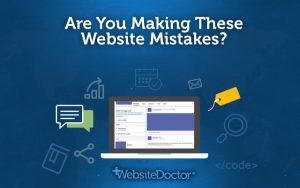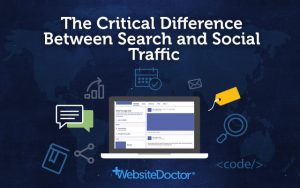I’m sometimes asked why I use and recommend WordPress as a CMS, instead of one of the other options like Joomla, Drupal, Expression Engine, etc. Here are some of the many reasons why I choose and recommend WordPress as CMS for many organisation’s web needs.
- WordPress is free for personal and commercial use.
- WordPress is very popular – lots more people use it in comparison to every other system. This means there are:
- more design templates (called Themes) – both free and commercial – available for WordPress than for other systems
- more add-ons (called Plugins) available which allow you to do almost anything you need with a WordPress site
- more WordPress programmers and designers all around the world
- more documentation, help files and how-to videos
- WordPress is easy for non-technical users. One of the most important things for me is that non-techies can log in and edit their website quickly and easily, and because of WordPress’s quite intuitive admin screen, the support requirements are easier.
- WordPress is a very powerful Content Management System (CMS). Despite still (at least in v3) being configured “out of the box” as a blogging solution, it has almost every CMS feature you may need:
- Parent and Child Pages and Posts
- Categories and Page Templates
- Multiple Users and different User levels (Roles)
- Advanced Menu editing system
- WYSIWYG Visual and HTML Editors
- Plugins and Themes (templates)
- XML import and export
- loads more – there’s almost nothing it can’t do
- WordPress is open source, which means bugs and security issues are fixed quickly, and website owners can customise the system as much as they want themselves. It also means new features are available on a regular basis, and those updates can be applied within seconds using the easy update tools within the system.
- WordPress is the market leading Open Source CMS, according to the 2010 Open Source CMS Market Share Report:
When we add all this up, we reach the conclusion that for 2010, WordPress has moved into market leader role in the Open Source CMS space. We conclude that the system leads in key metrics for both rate of adoption and brand strength. What accounts for the surge in WordPress brand strength this year? There is likely no single factor explaining the change, but we would attribute the success at least in part to the following:
- The success of WordPress 3. The newest major version release occurred in June of 2010.
- The continuing popularity of the WordPress hosted blogging service.
- A growing awareness in the market that WordPress is suitable for more than blogging.
But what about…
Security
Security is often leveled as a criticism against WordPress, and maybe deservedly so back in the day, but since 2007 or so WordPress has been very quick to roll out security fixes when found, and it hasn’t been any more often than other systems lately.
Other security issues with sites running WordPress are often caused by bad web server configurations or loose file permissions, i.e. not WordPress-specific, these are issues that can apply to any CMS (particularly those on shared hosting services).
Updates too often
The flip side of the security coin – and again this was very much the case in the past. Looking at the release history there were 5 updates in 2006, 16 updates in 2007, 7 in 2008, 9 in 2009 and 7 (up to 11 December) in 2010. Clearly 16 in 2007 felt excessive. However, with the easy update from the dashboard, you can update quickly and easily in 30 seconds or less.
Performance
WordPress is often accused of having poor performance, and I’m sure that some optimisation can be done, but out of the box on a good webserver with fast database, it’s quite good. Add caching (WP Super Cache or W3 Total Cache) and you can serve static pages when you’ve got intense traffic. For extreme traffic use a fast webserver like Lighttd instead of Apache on dedicated server with caching enabled, gzip and minify your scripts and use a CDN and you’ll handle anything the web can throw at you.
Specialised Tasks
There are still certain specialised tasks that I wouldn’t use WordPress for, even though it’s possible and there are many plugins available to allow it to do almost anything
Ecommerce: I wouldn’t use WordPress as the main platform for an ecommerce store – I’d use something more specialised like Magento, ZenCart, OScommerce, CubeCart if going self-hosted, or Shopify, 1ShoppingCart etc if going hosted.
HelpDesk Ticketing: I’d use something specifically for ticketing (like osTicket), but I have seen many WordPress plugins for this.
Project Management Task Tracking: I currently use BaseCamp, and there are other open source alternatives which are more suitable than configuring WordPress, although again, there are plugins and themes available for that.
Your Thoughts
What about you? What types of sites would you not recommend using WordPress for? Have you any comments or suggestions?




